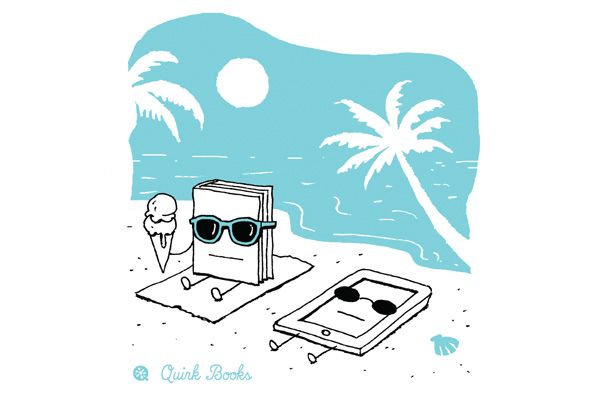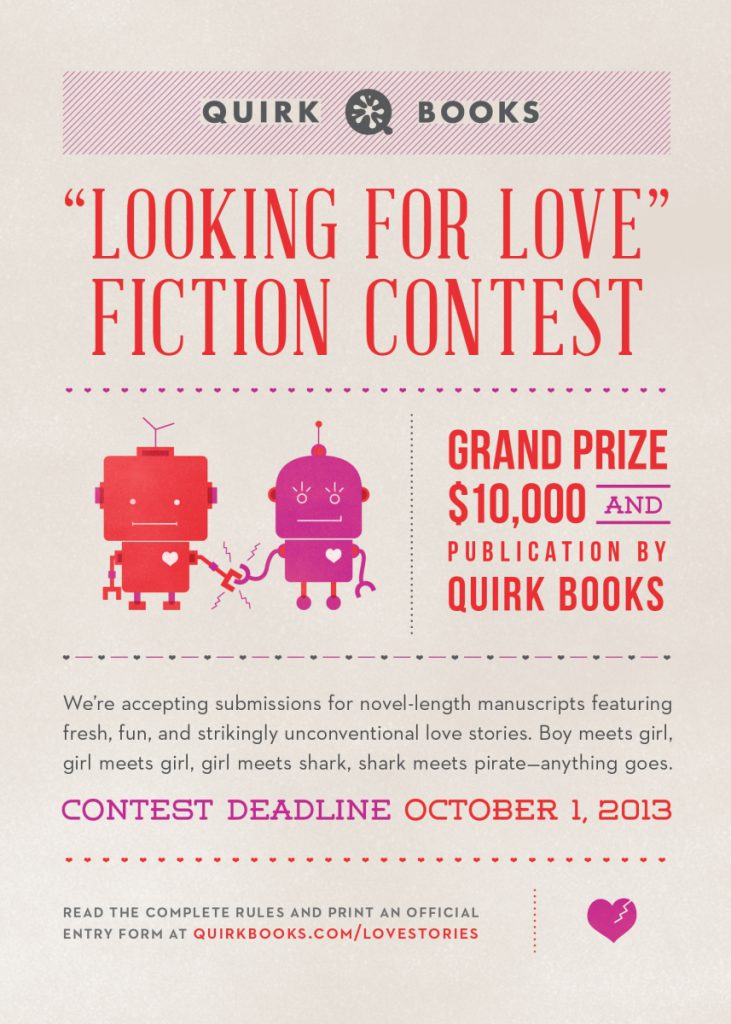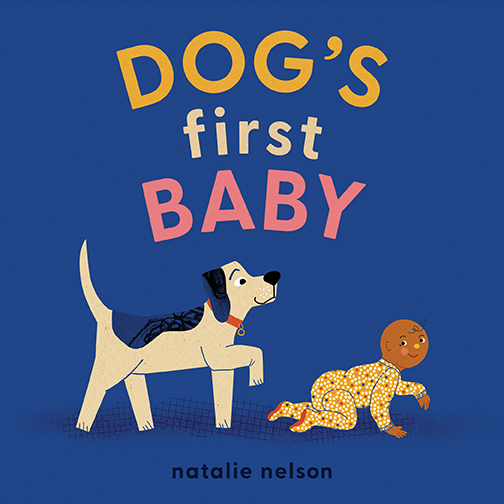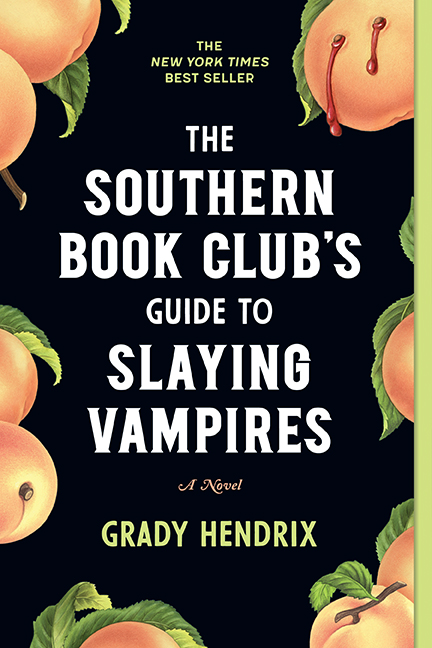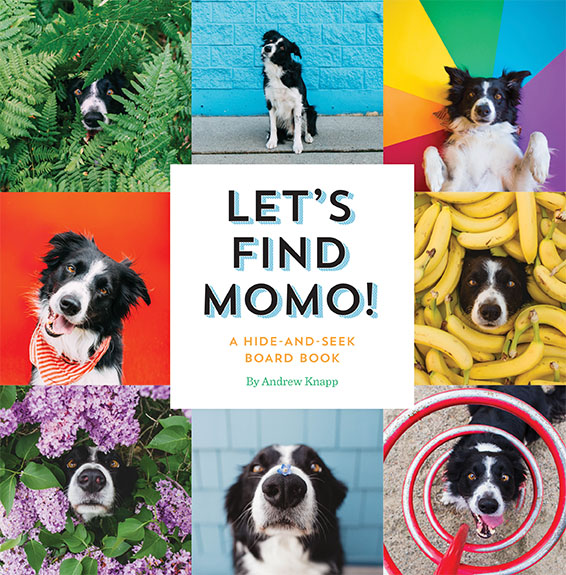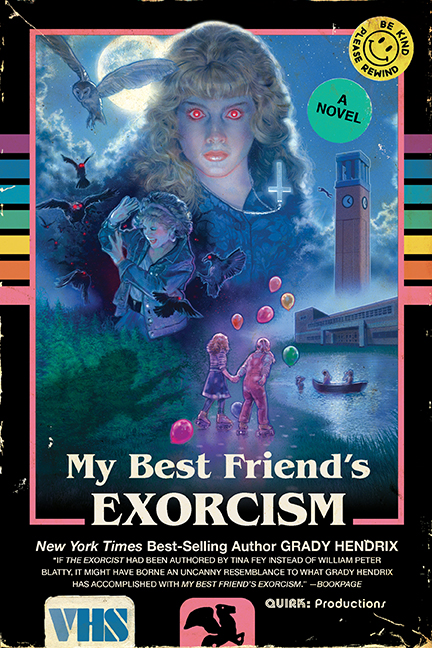Our Blog
Announcing Tapestry
Please allow me to introduce you to Tapestry–a new mobile story-telling platform that uses taps to push the story forward. It's crazy fun and completely addictive. We promise. And, the Quirk Books Channel is part of Tapestry's launch–which is happening today, like right now!
We have 6 stories that we're excited to share with you.
Posted by Brett Cohen
Book Expo America 2013: A Recap In Photos & Vines
Well another BEA has come and gone, and this year might have been our best one yet. Why? Read on for some highlights in photos and Vine videos!
Posted by Eric Smith
Philadelphia! Meet Resurrectionist author/illustrator E. B. Hudspeth at Macy’s on Friday, June 7th!
Philadelphians! Want to get an inside look at the work of The Resurrectionist while eating tasty food and dancing to a live DJ? Yeah, us too. Come out to Macy’s in Center City this Friday, June 7th from 5-7 PM for a hometown party to celebrate the release of the book Publishers Weekly calls a “welcome addition to any library of dark fantasy.”
We’ll see you there! And be sure to check out Macy’s awesomely creepy window display (above).
Here’s the gory details:
The Resurrectionist Macy’s Launch Event
Friday, June 7th
5-7 PM
Macy’s Center City
1300 Market St., Phila. PA
Posted by Blair Thornburgh
Around the World in 80(ish) Doughnuts for National Doughnut Day!
(Image via Flickr)
Forget love: doughnuts are the international language. And they should be celebrated! Though a holiday like “National Doughnut Day” generally implies we should only care about American ones, when it comes to doughnuts, it’s all about spreading the love far and wide. And in turn, everyone else should also share their doughnuts with us on this, our joyous holiday. It’s only fair. If you went on a doughnut expedition (or pilgrimage, depending on your feelings) around the world, what would you see and eat? Here are some of the doughy morsels you shouldn’t miss.
The Good ol’ USA: Since the National Doughnut Day thing started in the USA, we should start our tour there! Head into grocery stores or actual doughnut shops to taste the wonderful fried dough in varying shapes, sizes and flavors. I personally like plain hole-in-the-middle doughnuts with plain glaze, but maybe you’re the type that doesn’t want holes in their pastries and prefers them to be creme-filled.
Or maybe you like bite-sized and powdered. Heck, maybe you want them chocolate-flavored with extra chocolate icing and sprinkles. Whatever your preference is, you’ll find it somewhere. And you must, because, as Krispy Kreme says, you (the consumer) are “the center of the doughnut.” You fill in that void. (d’aww) Feeling extra adventurous? Try a Luther Burger (that’s a burger with doughnuts for buns, for the uninitatied and hungry).
Posted by Kristina Pino
Quirk Books’ “Looking For Love” Fiction Contest
Hello, writers. We’re Quirk Books.
We’ve brought you bestselling YA fantasies, Edgar award-winning mysteries, and masterpieces of zombie literature.
But looking back at all the weird and wonderful books we've published, we can't help but ask ourselves… where is the love?
To answer that age-old question, we're announcing the Quirk Books “Looking for Love” Fiction Contest. First prize is $10,000 AND publication by Quirk Books. We’re looking for love stories that are fresh, fun, and strikingly unconventional. Boy Meets Girl. Girl Meets Girl. Girl Meets Shark. Shark Meets Pirate. Anything goes!
Except vampires. Sorry.
Win us over, knock us out, and show us what we're missing! The contest deadline is October 1st, 2013. For official rules and entry form, click the Download Entry Form button above. Good luck!
UPDATE: I wanted to let everyone know that we've reached a decision regarding the Looking for Love Fiction Contest. If you haven't been contacted by a representative of Quirk Books, we encourage you to submit your manuscript elsewhere, and we wish you the best of luck placing your manuscript with another house. We would like to thank everyone for sharing their stories with us.
Posted by Eric Smith
Eight Literary Hats You Can Totally Crochet Yourself
Crocheters of the world, take heed! You don’t need Funny Hat Day as an excuse to look for new ideas. Browse no further than this handy list of literary hats and their corresponding online crochet patterns. The best part? You don’t need to be kid-sized to wear the finished products in the case of nearly every listing here. (Since one of my goals for 2013 is to improve my beginner-level crochet skills, I don’t have any patterns of my own to share, but I’ve got no problem highlighting the work of other brilliant yarnworkers).
Posted by Kristina Pino

